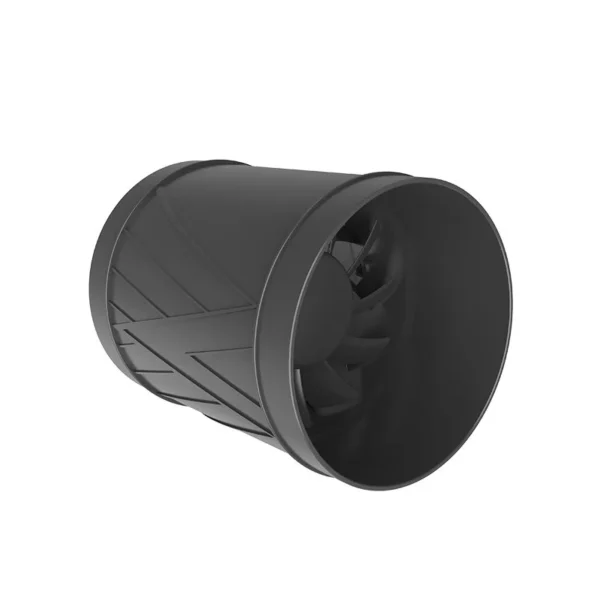
Inline Duct Fan: The Ultimate Guide to Improved Airflow Efficiency
What Is an Inline Duct Fan?
An inline duct fan is a powerful ventilation device installed within ductwork to boost airflow in HVAC systems, grow rooms, kitchens, and industrial settings. Unlike traditional exhaust fans, inline duct fans are mounted inside the duct, making them quieter and more efficient for long-distance air movement.
Why Use an Inline Duct Fan?
Enhanced Airflow – Ideal for extending ventilation reach in large spaces.
Energy Efficiency – Uses less power compared to traditional exhaust fans.
Quiet Operation – Mounted inside ducts, reducing noise pollution.
Versatile Applications – Used in greenhouses, kitchens, bathrooms, and HVAC systems.
Types of Inline Duct Fans
Centrifugal Inline Fans – High pressure, best for long duct runs.
Axial Inline Fans – Better for short ducts with high airflow needs.
Mixed Flow Fans – A balance between pressure and airflow.
How to Choose the Right Inline Duct Fan
CFM (Cubic Feet per Minute) – Match the fan’s airflow capacity to your room size.
Duct Size – Ensure compatibility with your existing ductwork (4”, 6”, 8”, etc.).
Noise Level – Look for dB ratings if quiet operation is a priority.
Static Pressure – Important for systems with filters or long duct runs.
Installation Tips for Inline Duct Fans
Position Correctly – Install near the air source for optimal efficiency.
Secure Mounting – Use rubber isolators to minimize vibration noise.
Seal Duct Connections – Prevent air leaks with foil tape or duct sealant.
Consider a Speed Controller – Adjust fan speed for better control.
Best Inline Duct Fan Applications
Indoor Grow Rooms – Ensures proper air exchange for healthy plants.
Kitchen & Bathroom Ventilation – Removes humidity and odors.
HVAC Boosting – Improves airflow in central heating/cooling systems.
Commercial & Industrial Ventilation – Used in warehouses and workshops.
Maintenance & Care
Clean the fan blades regularly to prevent dust buildup.
Check for duct obstructions that may reduce efficiency.
Replace filters if used in conjunction with the fan.
Conclusion
An inline duct fan is a cost-effective solution for improving ventilation in residential, commercial, and industrial settings. By selecting the right CFM, duct size, and type, you can enhance airflow efficiency while keeping noise levels low.
Looking for the best inline duct fan? Compare top-rated models to find the perfect fit for your ventilation needs!

